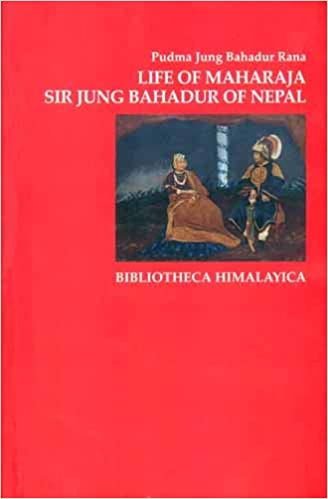
An important biography of Maharajah Jung Bahadur Rana was written by his son General Padma Jung Rana during his exile in India and it was published after his death in Allahabad in 1909 A.D. by Pioneer Press titled “Life of Sir Jung Bahadur of Nepal”. It is the only book to my knowledge that is written by an “insider” eye witness, a member of the family of Jung Bahadur, and is full of interesting accounts and anecdotes that would not have come to light had it not been for this book. I have always wanted to learn more about the Rana family members who fled Nepal after the coup d’etat of 1885 A.D. and their life in India. Here is the first in the series: my findings on General Padma Jung Rana.
A tragedy in life came early, at the very instance of birth in fact. Writes General Padma Jung Rana in his biography of his famous father, he was born on the very day Maharajah Jung Bahadur Rana left Kathmandu for the war effort to relieve the hard-pressed British forces in Avadh. This was on the 10th of December 1857 A.D. His unfortunate mother Bishnu Kumari, a niece of Bada Maharani Hiranya Garva Kumari, passed away soon after giving birth to him. Bishnu was the daughter of Ranasher Shah, a brother of Chief Minister Chautaria Fateh Jung Shah, elder brother of Hiranya Garva, slain at the infamous Kot Massacre. These matrimonial ties were made to re-establish good relationships with the extended family of Nepalese royals, the powerful Chautaria clan. Too young to feel this first tragedy, he would have reflected upon it many a time when he was older.
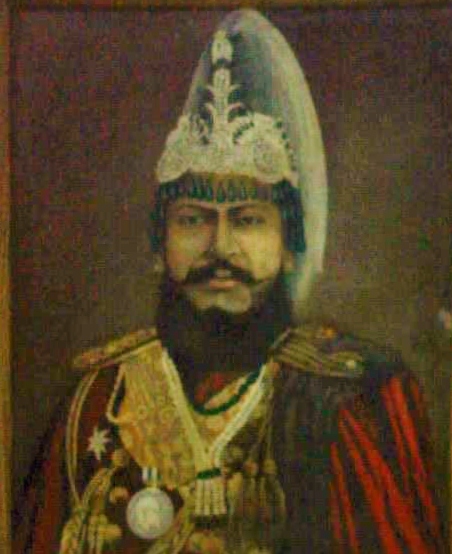
Hiranya Garva Kumari adopted him and raised him as his own. She had four daughters of her own but no sons, hence providence had provided her with a son! Padma grew up in an exalted state as his adoptive mother was the only Bada Maharani or main consort Prime Minister Jung Bahadur had during his rule since his former wives had passed away. He led a life of privilege in Thapathali Durbar growing up together with his sisters who would one day become very influential. His elder sisters, Lalit Rajya Luxmi and Deep Rajya Luxmi, and younger sister Somgarva Rajya Luxmi would be married in the royal family: Lalit and Somgarva with Crown Prince Trailokya Bikram Shah and Deep with Dhirendra Bikram Shah, son of the younger brother of King Surendra, Mahila Sahebjiu (Duke) Upendra Bikram Shah.
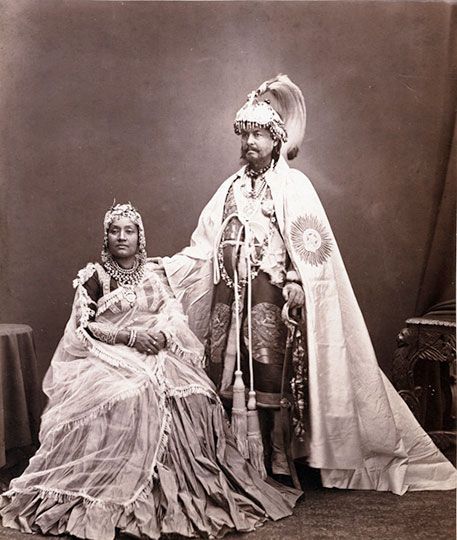
A tragedy perhaps even greater than the death of his birth-mother would befall later, but let us not get ahead of ourselves. As the third son of Maharajah Jung Bahadur from his married wives, the first two being Jagat Jung and Jeet Jung from his Gorakhpur Tandon wife Nanda Kumari, now deceased, Padma led a life of privilege. From getting a good education at the Thapathali Durbar School with tutors from Calcutta to training in the military, from music lessons to poetry classes as was customary of the time, Padma excelled in all that was thrown at him. He accompanied his father many a time in his extravagant hunting expeditions. In the summer of 1871 A.D. Padma Jung was married to Bala Kumari Devi of a Kshetriya family of Gorakhpur amidst great rejoicing. The third Rani of King Surendra Bikram Shah, gave away the bride, a high honour for the couple. Nepal was at peace with Tibet since the Treaty of Thapathali was signed in 1856 A.D. during the time of Jung Bahadur. However, some disagreement appeared once more in 1873 A.D. and General Padma Jung led an expedition into Tibet that successfully resolved the issue without having to resort to another war. Padma had the singular opportunity of accompanying his uncle Commander-in-Chief Ranauddip Singh as a member of the Nepalese team attending the Delhi Durbar of 1877 A.D. that was organized to celebrate the Silver Jubilee of accession to the British throne by Queen Victoria. He was awarded with Kaiser-e-Hind Gold Medal on the occasion.
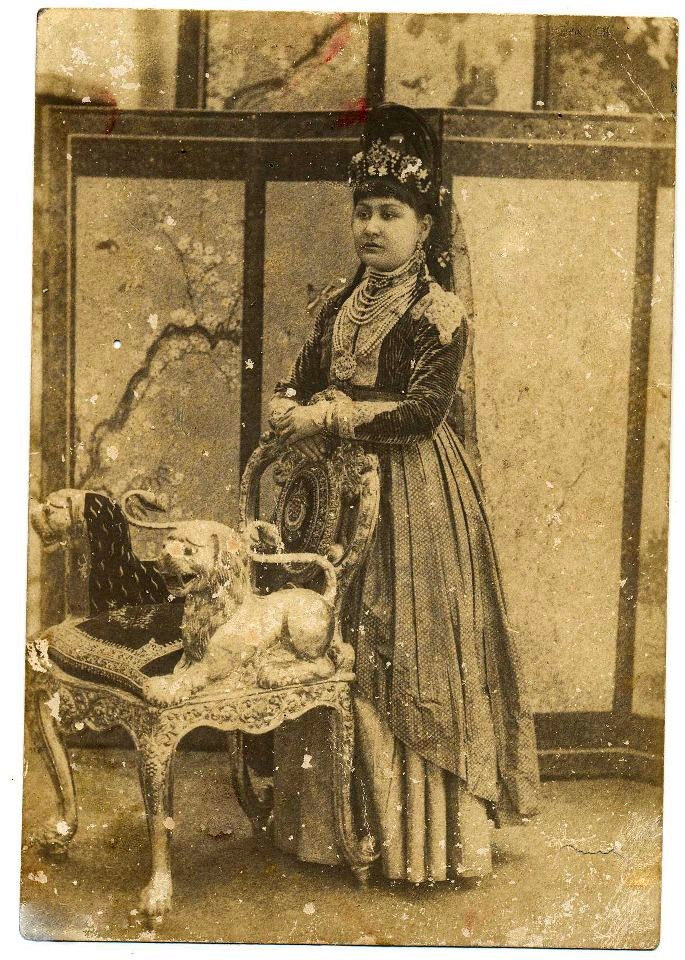
Maharajah Jung Bahadur Rana had willed the Roll of Succession in an agnate manner in recognition of the contribution of his younger brothers in shoring up his regime. He did not want the succession by primogeniture as he had witnessed how this had adversely impacted the Shah dynasty with many baby kings being crowned and the actual power lying in the hands of the Regent Queens and the strongmen behind them. Only after the succession by his six brothers would come the turn of his own sons and so the Roll of Succession in the next generation had Jagat Jung, Jeet Jung and then Padma Jung in third place.
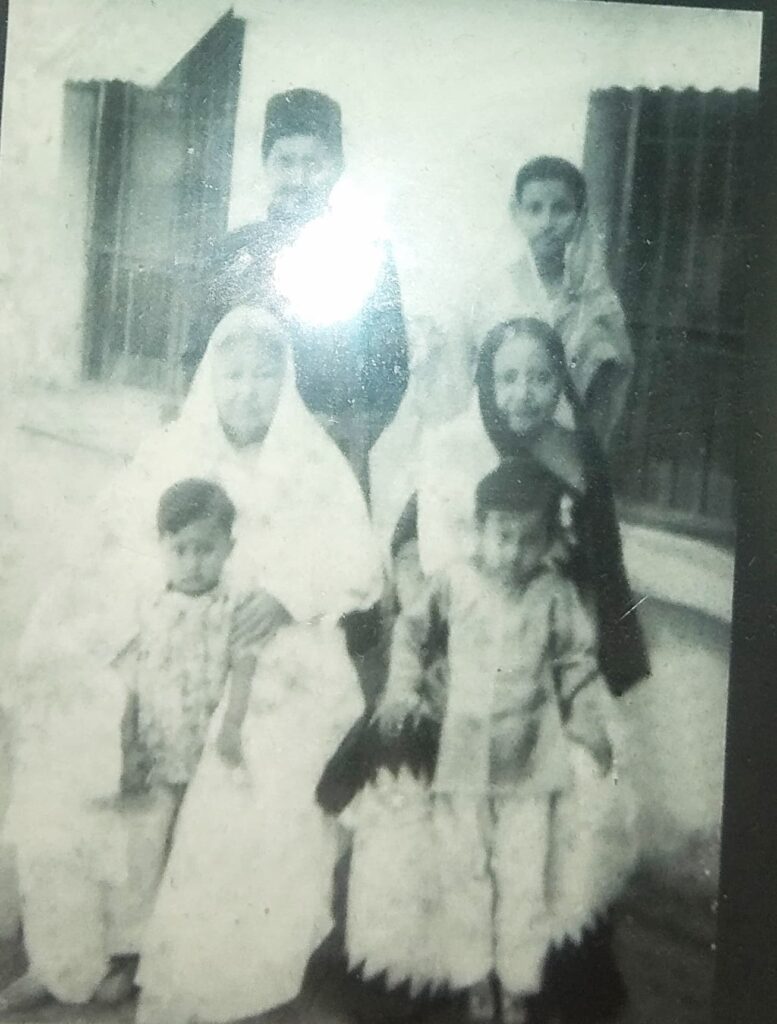
Rare photo of Rani Bala Kumari nearly 100 with 3 generations
of her family, Kumbh Mela 1954 A.D., courtesy Rana Jodhbir
Jung, boy in lap of his grandmother Rani Hem Kumari Devi
It was in 1882 A.D. that a calamity took place. Maharajah Jung Bahadur had passed away in 1877 A.D. and his younger surviving brother Ranauddip Singh became prime minister. During this period the eldest son of Jung Bahadur, General Jagat Jung started conspiring to get rid of his uncles, Ranauddip and Commander-in-Chief Dhir Shumsher and take power in his own hands. Jagat was seething with anger that even the title of Maharajah of Kaski and Lamjung had been ‘usurped’ in his eyes by his uncle, if not the post of prime minister. He started enlisting supporters. In this enterprise he was aided by Sahebjiu Narendra Bikram Shah, the younger brother of Crown Prince Trailokya and his own brother Padma Jung, Eastern Commanding General at the time, along with a coterie of ‘bhai bhardar’, cousins and courtiers. Someone ratted, the plot was discovered and the plotters arrested. Both Jagat and Padma were removed from the Roll of Succession of the Rana Regime. Sahebjiu Narendra Bikram and Jagat’s cousin Bombir Bikram were incarcerated in Chunar in British India, 1882-85 A.D. Padma Jung, most fortunately for him, escaped this fate at the intervention of his sister Lalit Rajya Luxmi, the powerful Regent Queen and mother of the child king Prithivi Bir Bikram Shah. He was eventually restored to the Roll of Succession.
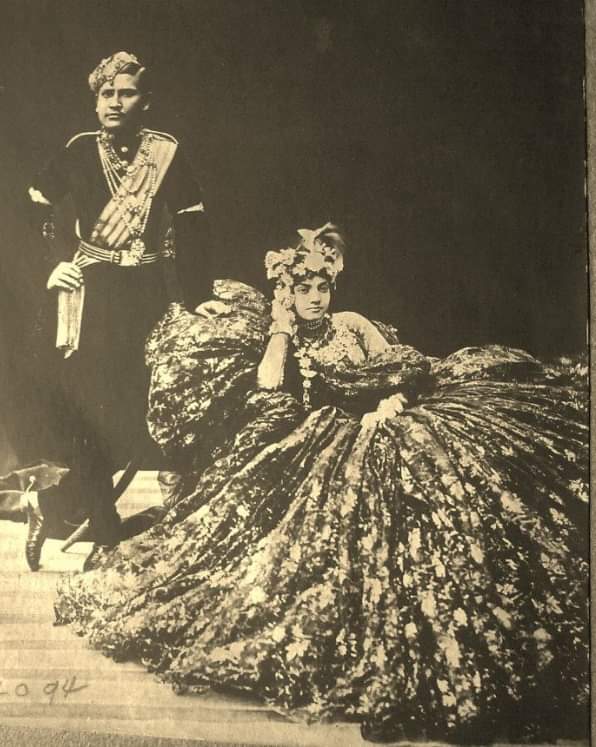
Padma Jung and sister Tara Rajya Luxmi, Regent Queen
Tension was rife in the ruling family during the years 1882 to 1885 A.D. From India General Jagat Jung was applying pressure on Prime Minister Ranauddip Singh to pardon him and restore him his military rank and enlist him back in the Roll of Succession. Jagat found sympathetic ears of the Maharani Hari Priya, his aunt, but was strongly rebuffed by uncle Dhir Shumsher who was the strongman in his brother’s regime. Unexpectedly Dhir passed away in October 1884 A.D. The floodgate of conspiracies from both the Jung camp and Shumsher camp was opened to oust one another from power.
It was after this the biggest tragedy of all struck General Padma Jung Rana and his siblings. The Shumsher camp succeeded in assassinating Prime Minister Ranauddip Singh in 1885 A.D. and stripped all the children of Jung Bahadur and rest of the family of his deceased brothers from power. General Jagat Jung and his son Juddha Pratap were killed and the rest took asylum in British India. At the time of the assassination of uncle Prime Minister Ranauddip Singh, Padma Jung was the Commander-in-Chief and the next in line since Jagat Jung had been stripped from the roll, and Jeet Jung, smelling trouble, had conveniently left for India on medical grounds and sent in his resignation from there.
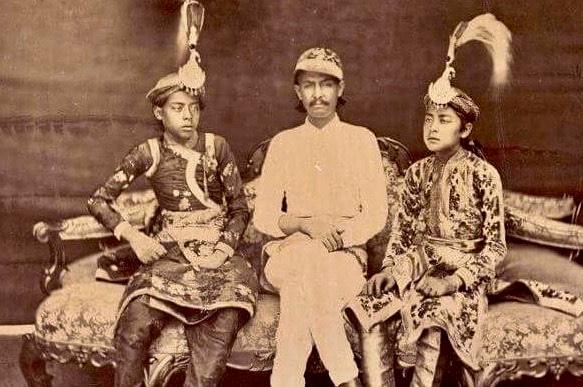
Maharajah Jung Bahadur with sons Jagat and Jeet
Exiled from Nepal Padma Jung fortunately had a keen supporter back home in the person of his sister Lalit Rajya Luxmi Devi, the mother of King Prithivi Bir Bikram Shah. Her husband the crown prince Trailokya had died young and soon after King Surendra Bikram Shah too died. Hence Lalit’s son the 3 year old boy Prithivi was crowned king in 1881 A.D. and Lalit became a powerful Regent Queen of Nepal. It was Lalit who was looking after General Padma Jung Rana in his time of need. It is true that the new maharajah Prime Minister Bir Shumsher, with her insistence, restored Padma’s properties and jewellery confiscated earlier. It is possible that she paid for his residence, the historical Phaphamau Castle in Allahabad, purchased from a British officer. General Padma Jung fared a lot better than his siblings who were exiled. He in turn helped General Ranabir Jung his younger half-brother financially.
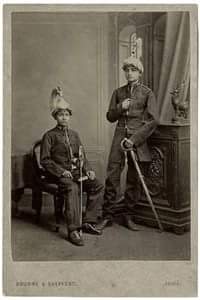
General Padma Jung got busy in exile renovating his residence complex at Phaphamau Castle, adding new buildings such as Nayee Kothi and Maiphil to the already existing structures. He was also busy marrying off his daughters to Indian royalty and securing them wealth and safety. He arranged his eldest daughter’s marriage in 1892 A.D. with Raja Sir Kirti Shah Bahadur, Raja of Tehri Garhwal, a 11-gun salute state, once part of Greater Nepal prior to 1815 A.D., now in Uttarakhand. She would be known as Nepaliya Rajya Luxmi Devi. He married off two more of his daughters Prabhabati Devi in 1900 A.D. and Arundhati Devi in 1906 A.D. to the ruler of 13-gun salute Tripura State, Maharajah Kirit Birendra Kishore Dev Burman of Manikya dynasty. Later a third daughter Churamoni Devi was also given in marriage to him.
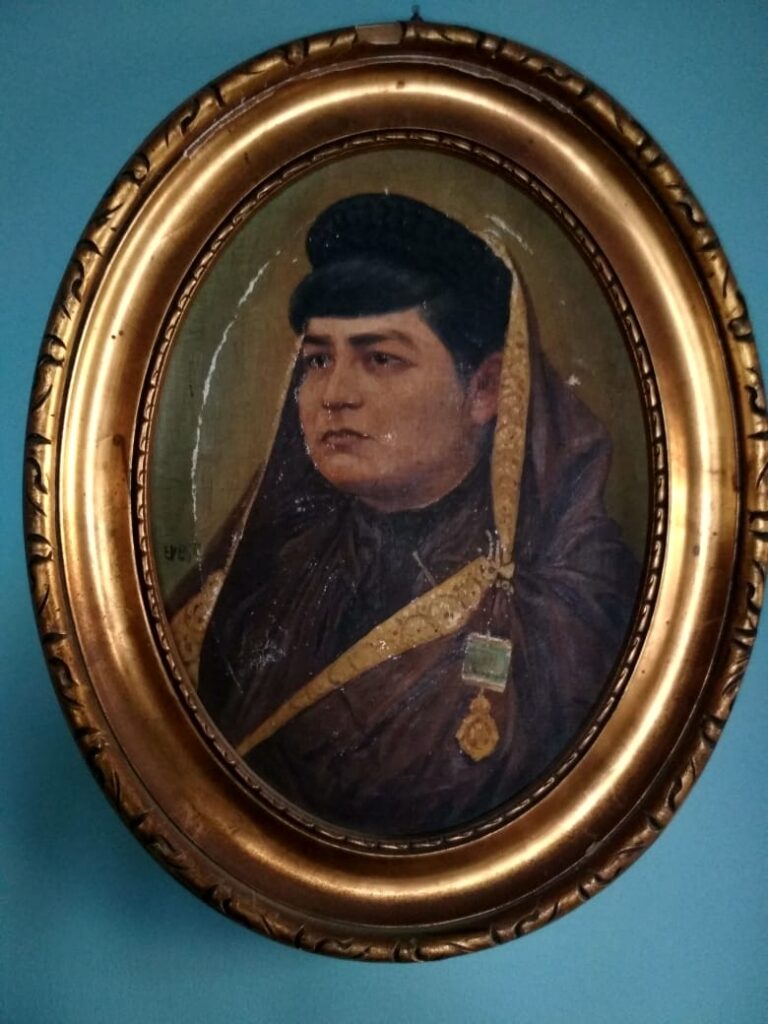
Rani Nepaliya Rajya Luxmi of Tehri Gahrwal
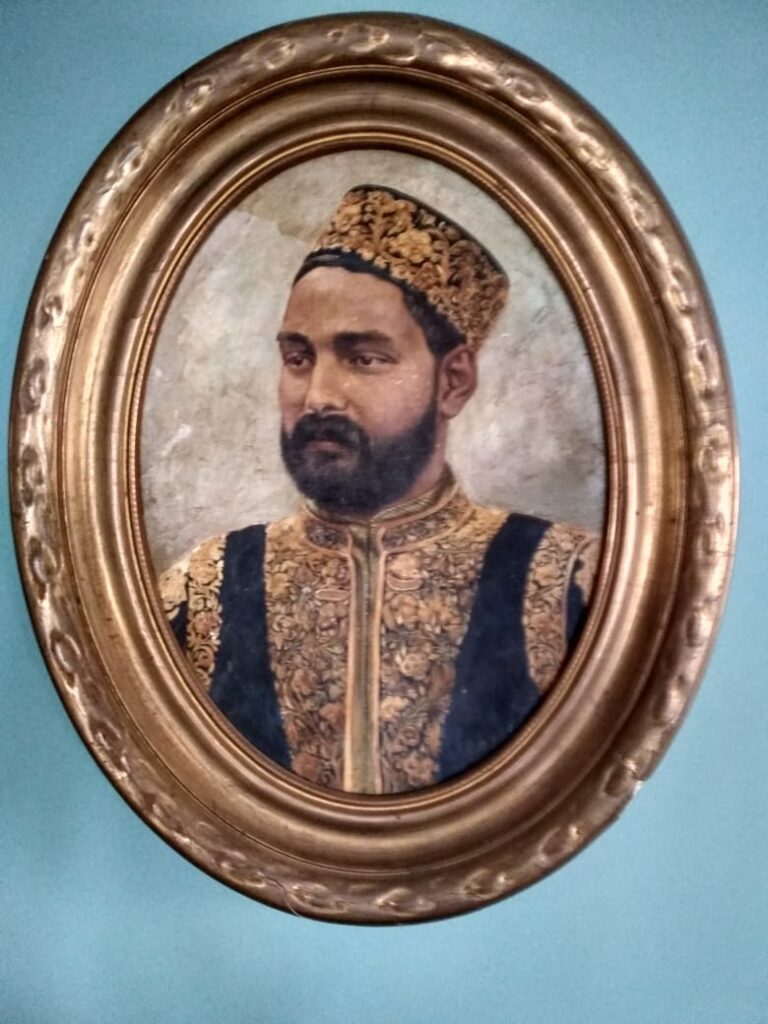
Raja Sir Kirti Shah Bahadur of Tehri Gahrwal
Photos courtesy of Rana Karan Prakash J.B.
These matrimonial ties of his daughters stood in good stead for his male progeny as they enlisted to serve in these states in various capacities in both civilian administration and the military. His second son from Rani Bala Kumari, Rana Bodh Jung entered the Civil Service in the state administration and later served as Chief Minister of Tripura. He established family ties with the royal family by marrying a niece of the maharajah and then a daughter of the maharajah. Similarly, some of Padma’s other sons from various junior wives entered state service in Tehri Garhwal.
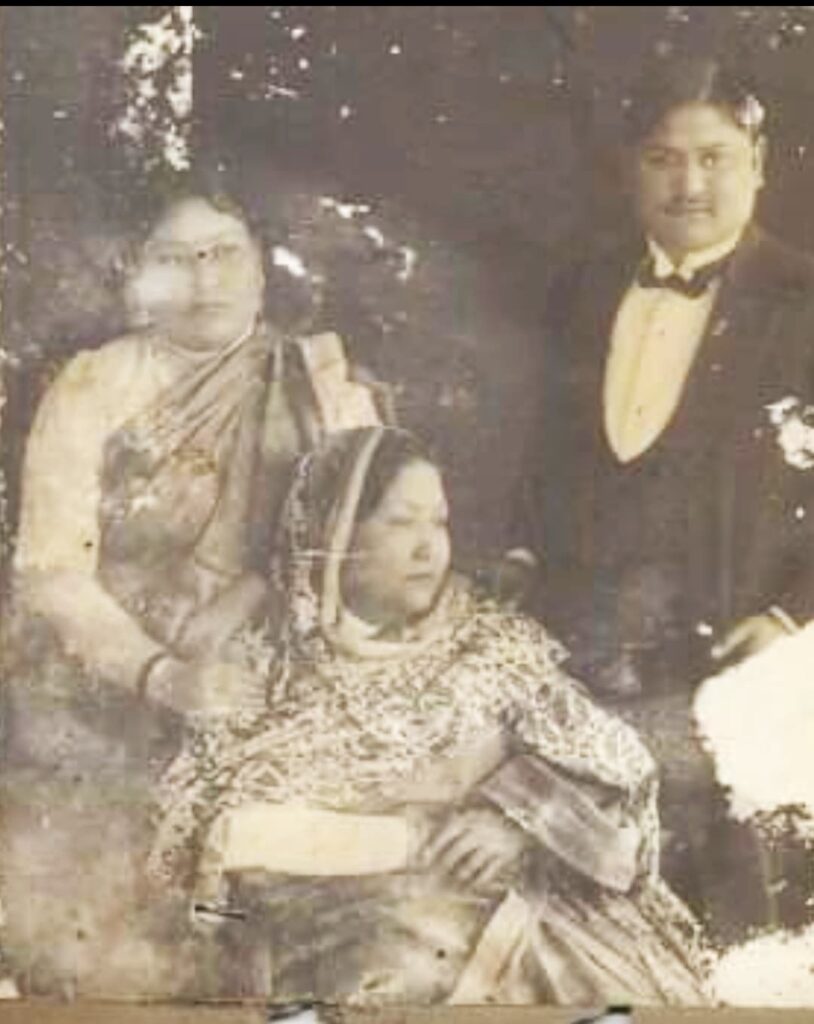
Sr. Rani Prabhabati Devi (sitting), Arundhati Devi, Rana Bodh Jung
Children of General Padma Jung, photo courtesy Rana Jodhbir Jung
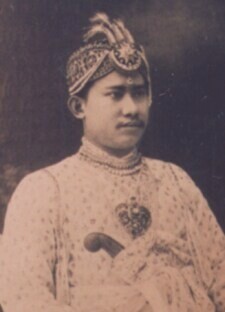
HRH Raja Birendra Kishore Dev Burman
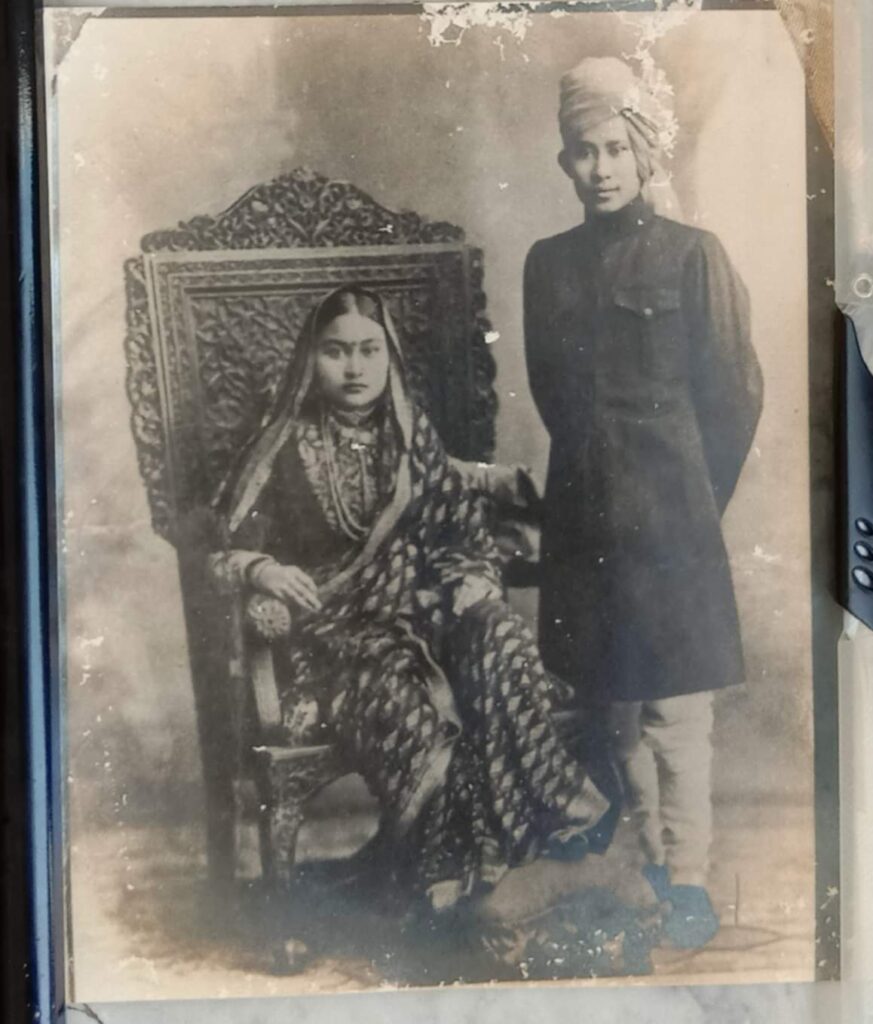
Maharani Arundhati and HRH Birendra Kishore Dev,
parents of Maharajah Bir Bikram Kishore Dev Burman
Another son Rana Jodh Jung Bahadur was an Indian military hero, having commanded the Tehri Gahrwal State Sappers & Miners during World War I in Flanders, Egypt and Mesopotamia. At the Battle of Loos he fought bravely and received five bullet wounds in his neck and upper shoulders. The British Military London News reported, “Rana Jodha Jung Bahadur who, in spite of being wounded, continued to lead his men against the Germans, and did not desist until a second wound in the neck rendered him unconscious. The Rana displayed great tenacity, leadership and conspicuous gallantry by leading his company right up to the German defenses in the face of heavy fire“. He was a graduate of the Imperial Cadet Corps (ICC) and was the first Gurkha officer in the British Indian Army. He later took the post of Commander-in-Chief of the Tripura State Forces and was promoted to the rank of a Colonel in the British Indian Army. His two grand-daughters Sita Rani Devi was the Rajmata of Makrai Indian Princely State located in Madhya Pradesh having married Yuvaraj Devi Shah and Geeta Rani Rana was married to Prachanda Singh of Tulsipur state, formerly Tulsipur-Dang Chauhan kingdom, located now in Uttar Pradesh and parts of Dang and Deukhuri in Nepal.
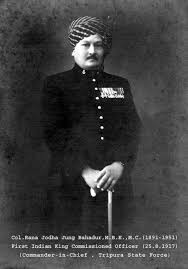
Colonel Rana Jodh Jung Commander of Tripura State Forces
Two daughters of Sita Rani migrated to Australia. Both Uma Hamal and Archana Thapa got married to Nepalese spouses and live in Canberra. Gitanagar in Chitwan is named after Geeta Rani as her husband ran the Rapti Valley Development Project started in the mid-fifties by the Government of Nepal.
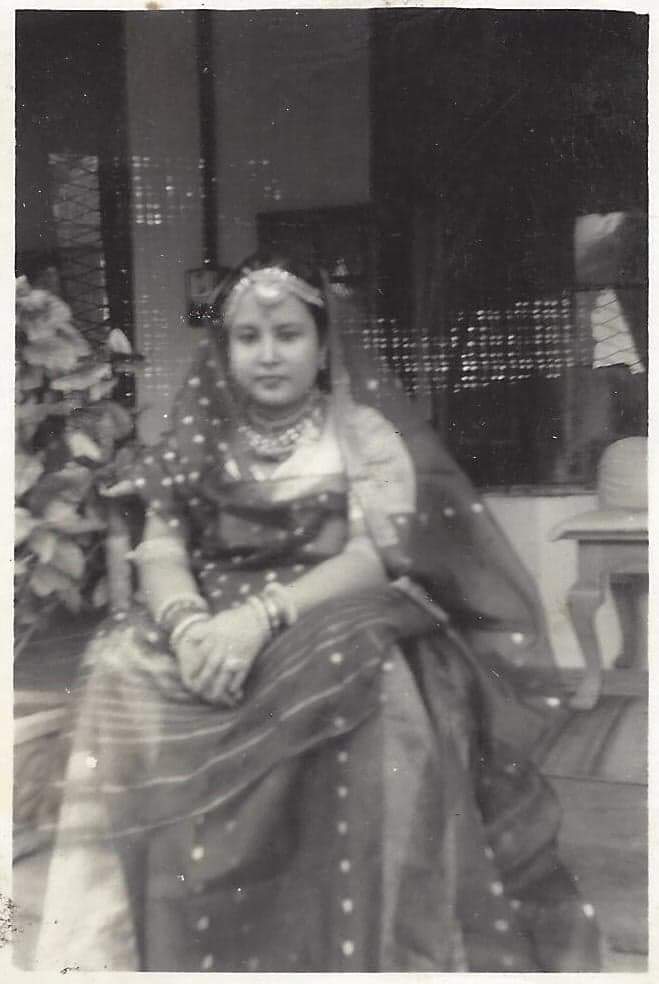
Sita Rani Rajmata of Makrai
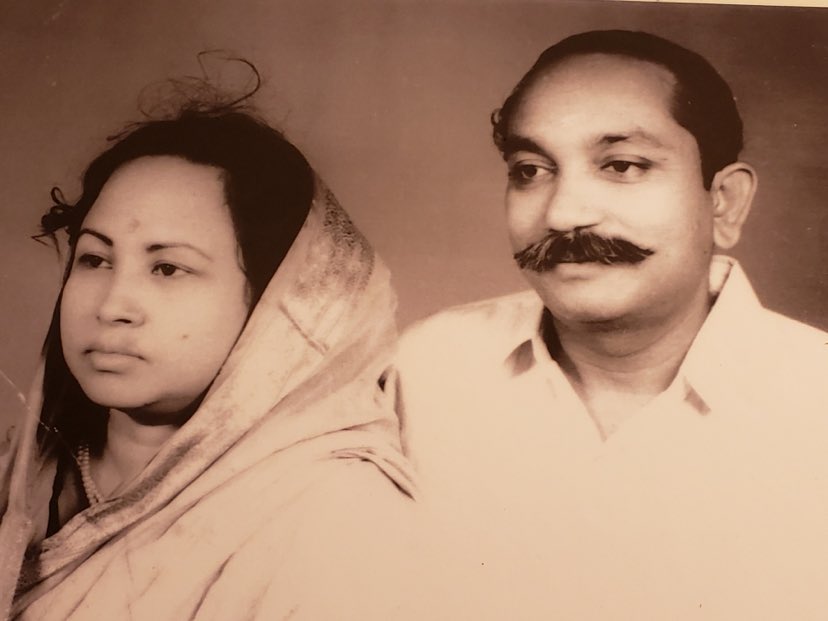
Sita Rani and Yuvaraj Devi Shah of Makrai
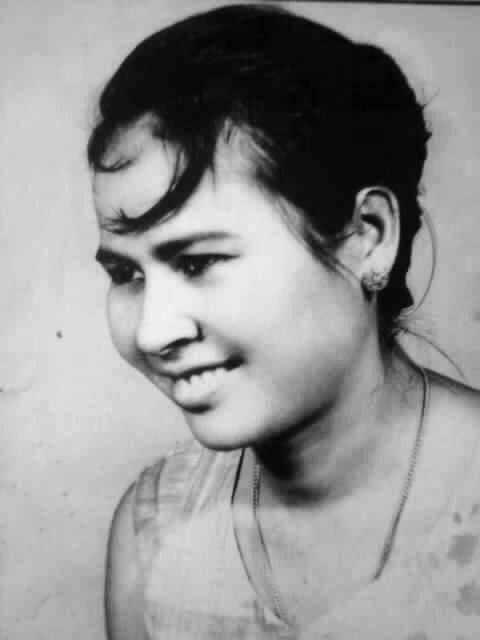
Geeta Rani of Tulsipur-Dang
(Received information and pictures from Mrs. Uma Hamal and Mr. Prem Jung Thapa in Canberra, Australia)
General Padma Jung Rana breathed his last in 1906 A.D. shortly after he completed the biography of his father. The manuscript was left in the custody of his eldest son Piush Jung but he too passed away in the following year thus delaying its publication. Finally it came to Abhay Charan Mukerji, Professor of English at Muir Central College in Allahabad who edited it and then it got published in Allahabad in 1909 A.D. We are much the wiser for it.


